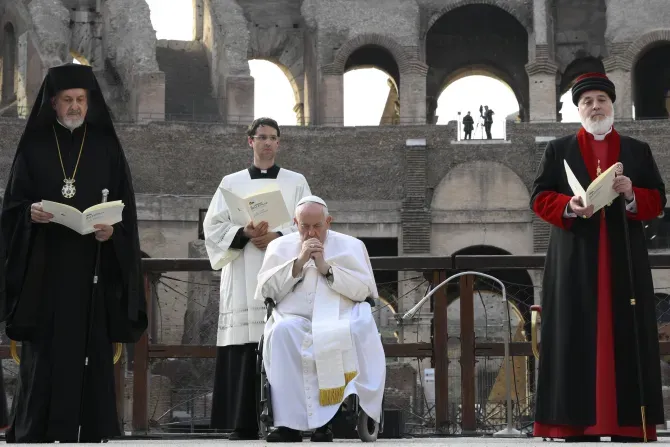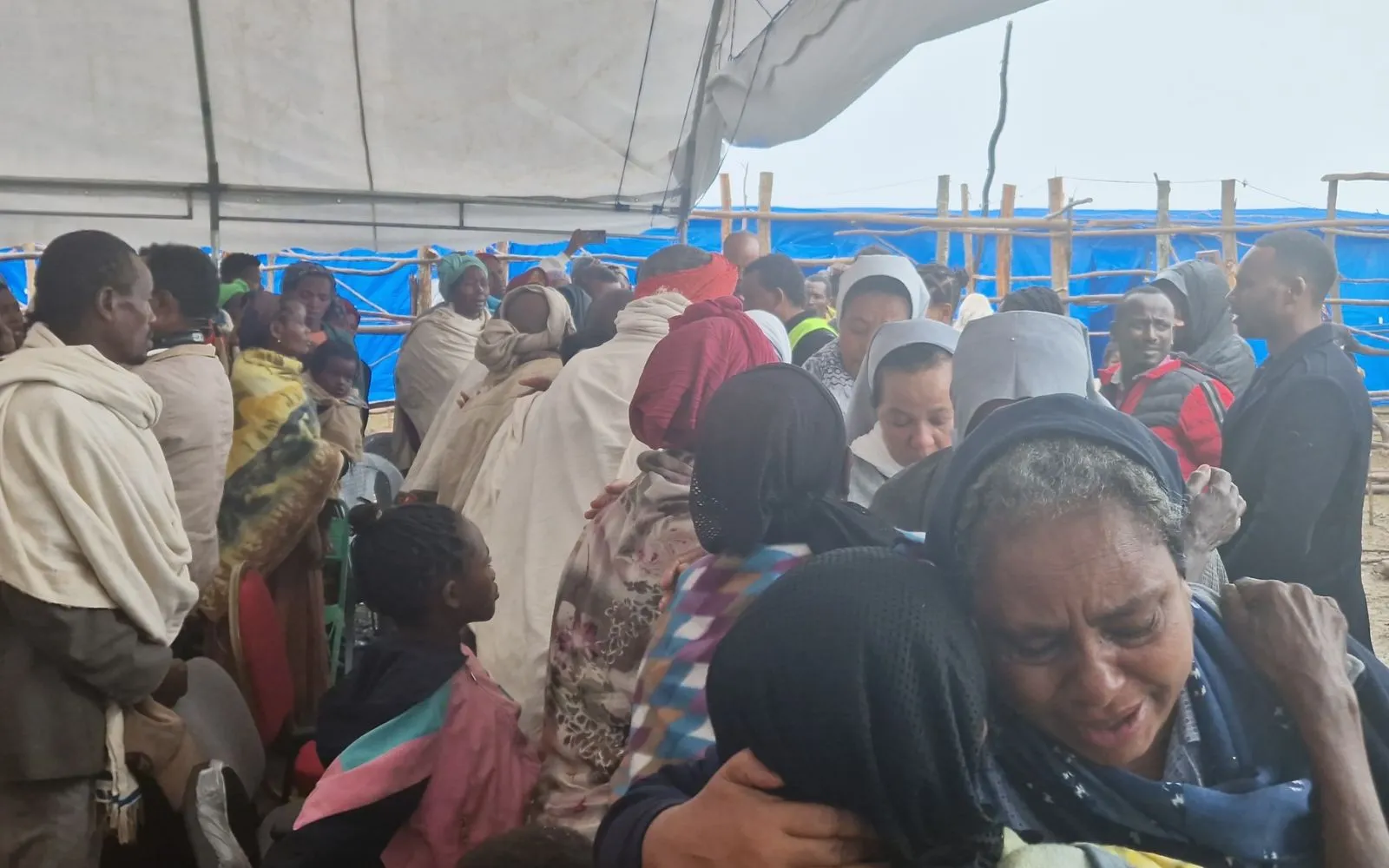Aboard the papal plane, 25 October, 2022 / 7:40 pm (ACI Africa).
Pope Francis raised the spectre of nuclear war at an interreligious appeal for peace at the Colosseum on Tuesday.
Speaking from a wheelchair on a stage beside Eastern Orthodox, Oriental Orthodox, Assyrian Church of the East, Protestant, Muslim, Jewish, Buddhist, and Hindu representatives, the pope underlined that he was making a plea for peace at a time when it has been “gravely violated, assaulted, and trampled upon … in Europe.”
“Today, in fact, something we dreaded and hoped never to hear of again is threatened outright: the use of atomic weapons, which even after Hiroshima and Nagasaki continued wrongly to be produced and tested,” Pope Francis said Oct. 25.
Francis highlighted how St. John XXIII pleaded with all government leaders to spare the world the horrors of war in 1962 at a time “when military confrontation and nuclear holocaust seemed imminent” and said that he wanted to make this appeal his own 60 years later.
Immediately following the pope’s speech, a Syrian refugee read aloud an Appeal for Peace co-signed by the religious leaders present.








